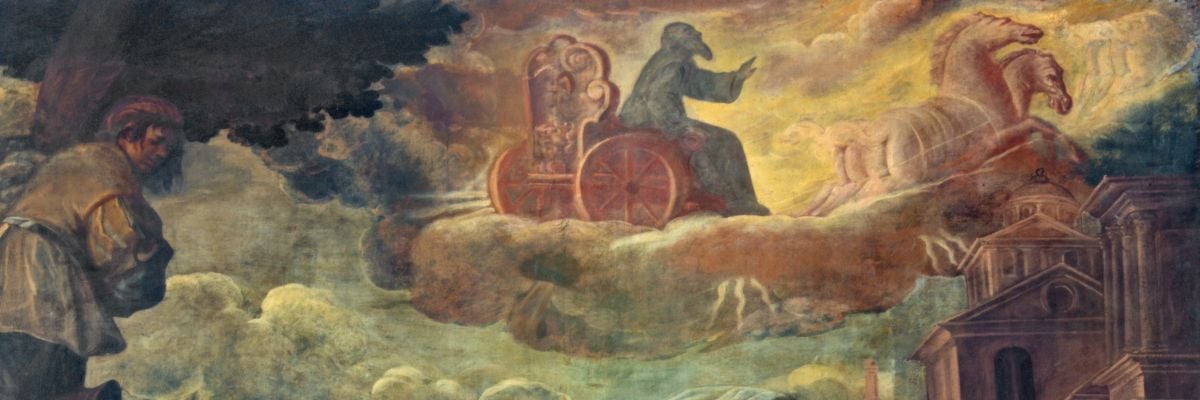
Many Catholics are aware that Jesus “opened the gates of heaven” and allowed the righteous dead to go there.
The Catechism even says it:
CCC 637 In his human soul united to his divine person, the dead Christ went down to the realm of the dead. He opened heaven’s gates for the just who had gone before him.
This leads to a question that comes up periodically: What about figures like Enoch and Elijah, who seem to have been assumed into heaven prior to the time of Christ?
The obvious answer, I’ve always held, is that they were exceptions. As a general rule, heaven was not open to those who lived before the time of Christ, but God is omnipotent, and he can make exceptions if he chooses.
Some of the people I’ve discussed this with seem to struggle with it, and I haven’t understood the source of their difficulty.
God can clearly give the blessings of the Christian age to someone prior to the time of Christ, on the basis of what Christ did. After all, that’s why the Virgin Mary was immaculately conceived. The Catechism explains:
CCC 492 The “splendor of an entirely unique holiness” by which Mary is “enriched from the first instant of her conception” comes wholly from Christ: She is “redeemed, in a more exalted fashion, by reason of the merits of her Son.”
CCC 508 From among the descendants of Eve, God chose the Virgin Mary to be the mother of his Son. “Full of grace”, Mary is “the most excellent fruit of redemption” (SC 103): from the first instant of her conception, she was totally preserved from the stain of original sin and she remained pure from all personal sin throughout her life.
If God could apply the redemption Christ wrought to Mary before his death and resurrection, then he could similarly apply its fruits to others as well—at least on an exceptional basis.
And the way that Enoch and Elijah’s lives concluded was clearly exceptional.
In Enoch’s case, Genesis 5:24 says that God “took” him, but doesn’t say where. Sirach 44:16 and 49:14 make it clear that he was taken up from the earth, and Hebrews 11:5 adds “so that he should not see death.”
In Elijah’s case, 2 Kings 2:11 states that “Elijah went up by a whirlwind into heaven.” First Maccabees 2:58 adds, “Elijah because of great zeal for the Law was taken up into heaven.”
Both 2 Kings and 1 Maccabees both use the ordinary Hebrew and Greek words for “heaven” (shamayim and ouranos, respectively)—indicating that heaven was where they went.
Recently I was rereading St. John Paul II’s general audience on heaven and noticed that he also acknowledged this:
The depiction of heaven as the transcendent dwelling-place of the living God is joined with that of the place to which believers, through grace, can also ascend, as we see in the Old Testament accounts of Enoch (cf. Gn 5:24) and Elijah (cf. 2 Kgs 2:11) [General Audience, July 21, 1999].
It thus seems that John Paul II—who is now himself in heaven—acknowledged the exceptional nature of Enoch and Elijah’s admission to that blessed realm.



